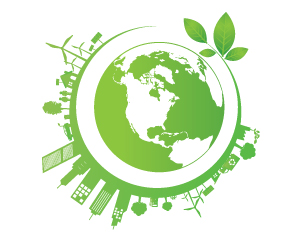10 Ways To Tackle Global Waste

Featured Image: iStock.com/HS3RUS
Amount of waste is mainly determined by two factors: the population of any area and how things are consumed in that area.
When you see any landfill of waste you realize how much waste we produce with the usage of different things in our lives. The problem of global waste is very obvious and it doesn’t only affect our environment but human health too. It is our responsibility to decide whether we reduce the waste or consume it by recycling.
In only the United States, more than 250m tons of waste is generated annually, out of which 136m is dumped into the landfills. While no one can calculate the waste that is generated globally, the figures range in the billions, including billions of disposable cups, plastic bottles, and bags which make it impossible to be dumped in the landfills in a sustainable way.
Let’s look at the 10 ways in which we can possibly tackle global waste.
1. Incinerating the garbage:
Incineration is a process of waste treatment that involves burning of the organic materials from the waste materials. This process decreases the amount of waste and is supposed to be a source of providing green energy to the environment. People who support this incineration process believe that it will reduce the waste volume, help generate clean power, as well as save money that is spent on tax paying for landfills and garbage disposals.
2. Recycle:
Recycle everything that can possibly be recycled. You will have to spend some extra minutes to figure out what needs to be thrown away as garbage and what should be kept for recycling. You might have to put an extra box or bag to pitch in the recyclables in it. You will be than liable to pay a visit to the recycling bank so that you can get rid of all those recyclable items in an effective way.
3. Design Infrastructure Cautiously:
When any trash is thrown away, chances are that it will more likely end up in a landfill. Landfills can also be built carefully serving the purpose of keeping garbage away from polluting the environment and keeping the mankind and wildlife safe.
4. Proper Sewage System:
A liquid known as “leachate” is made when the rain mixes up with the harmful chemicals buried in the landfills. Landfills are supposed to be made protective with liners so that leachate doesn’t spread around causing harm to the surroundings.
5. Purchase Recycled Products:
Buy things that are already recycled to reduce the global waste. Electronic waste must be recycled so that its further production can be done and people may opt to buy them. Similarly recycled bags, papers and packaging should also be utilized. If the trend of buying recycled products increases it will surely reduce the unnecessary waste.
6. Refill Products:
Enhance the consumption of those products that can be refilled or allow refilling in order to reduce waste.
7. Save Paper:
Reduce the consumption of unnecessary paper. You may use online facilities if available instead of using paper. Try and manage your bank accounts online and reduce the paper consumption where possible.
8. Help From Government:
It should be the responsibility of the governments to set rules and regulations about environmental standards. States need to promote a sustainable economic system by maintaining the standards about recycling of all kinds of waste.
9. Production of Durable Products:
Non-durable products reduce the products life cycle. Products should be manufactured in such a way that their consumption is made reliable and durable which would ultimately result in minimum global waste.
10. Burn The Garbage:
Burning the waste is better than burying it in the landfills. Burning garbage reduces the waste from 80%-90%.
Following the 10 above mentioned steps might help us get rid of the global waste. It may be difficult to get rid of it completely but a sincere effort would definitely help in its reduction to a noticeable level.
About The Author Kelly Sampson
Kelly Sampson is a writer, blogger, and environmental enthusiast. She has strong opinions about climate change, the dogs vs. cats debate, and Oxford commas. She has lent Hummingbird International her engaging and spirited voice and turned our blog into a great place to find valuable information about e-waste, e-waste recycling, and the ITAD industry. Explore our blog to read more of her work.
